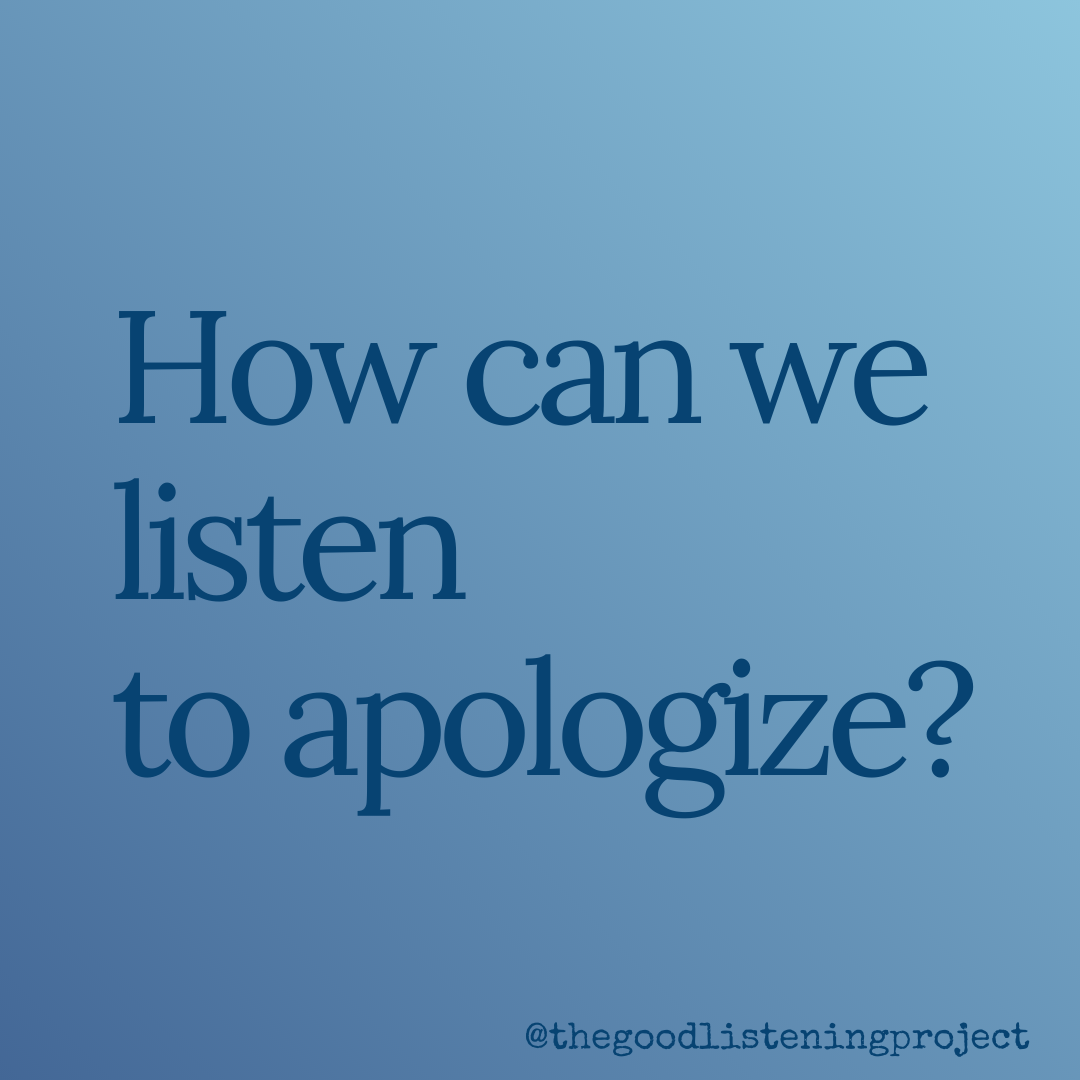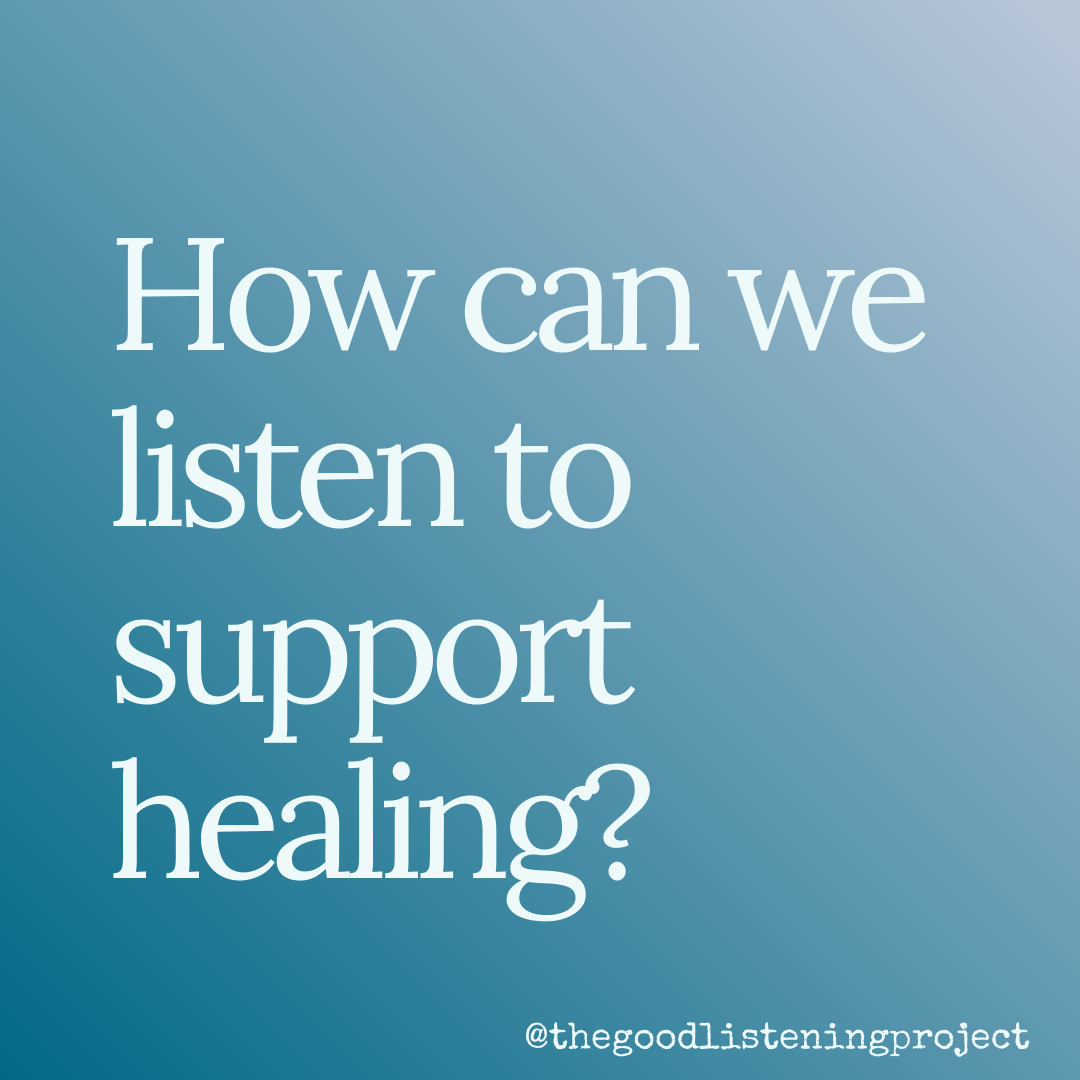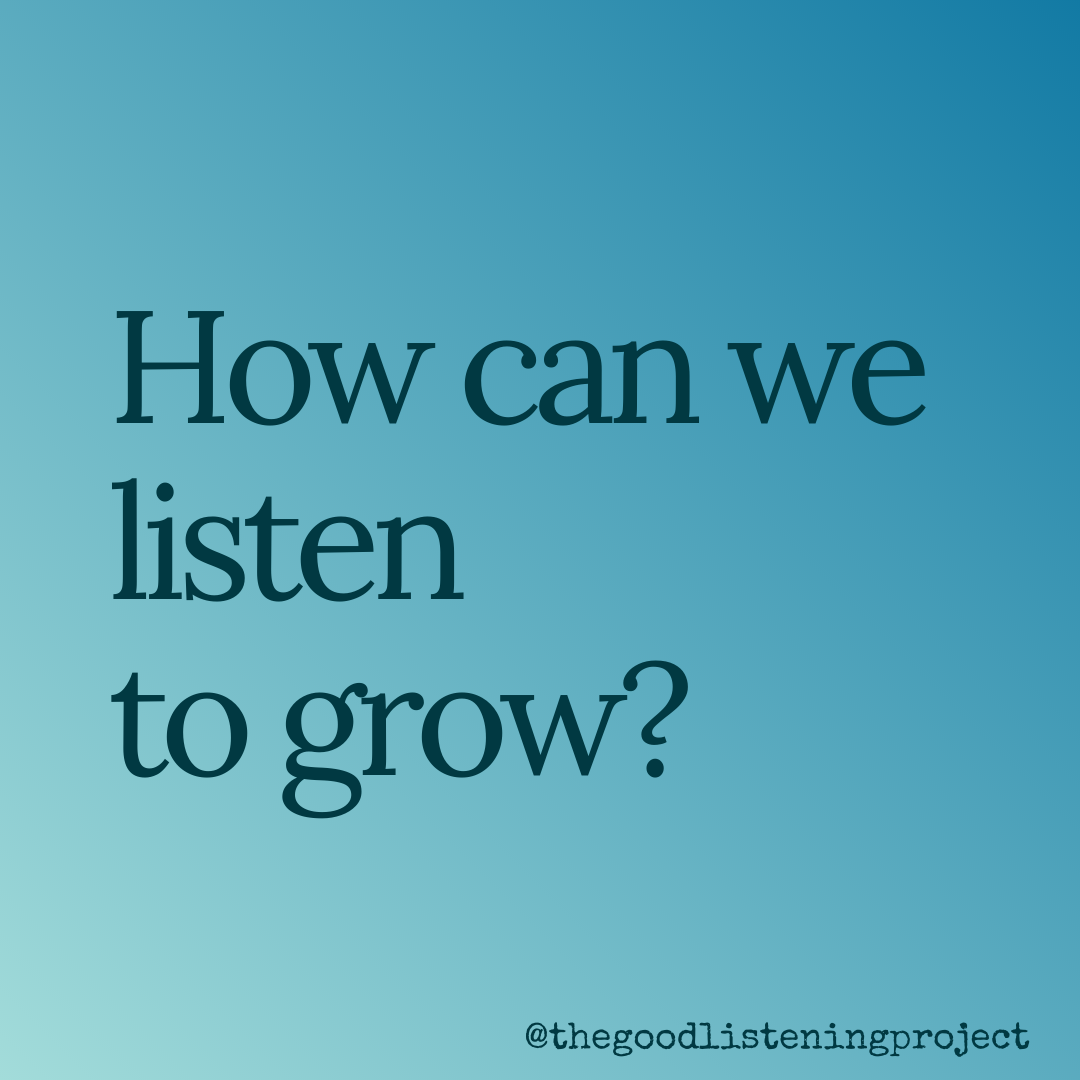There are so many different reasons for listening. In this series, we’re presenting a range of inquiries as a way to think about how and why we listen, and how our intentions affect the experience.
Today we’re asking: How can we listen to support healing?
What happens when we ask: "Is there anything else on your mind?"
The power in this question is permission-giving: it sometimes triggers an addition of information that you couldn’t have expected — something the person has been holding in, wondering if they should add it, wondering if there was a place for it, wondering if it was important enough for you to care.
Doctors may know this phenomenon as the “doorknob question:” it’s when an appointment with a patient has just concluded and they’re reaching to the door for their next appointment. The patient, feeling their time is up, finally summons the courage to reveal the thing they’re most hesitant to share.
Summer 2020
There are so many different reasons for listening. In this series, we’re presenting a range of inquiries as a way to think about how and why we listen, and how our intentions affect the experience.












